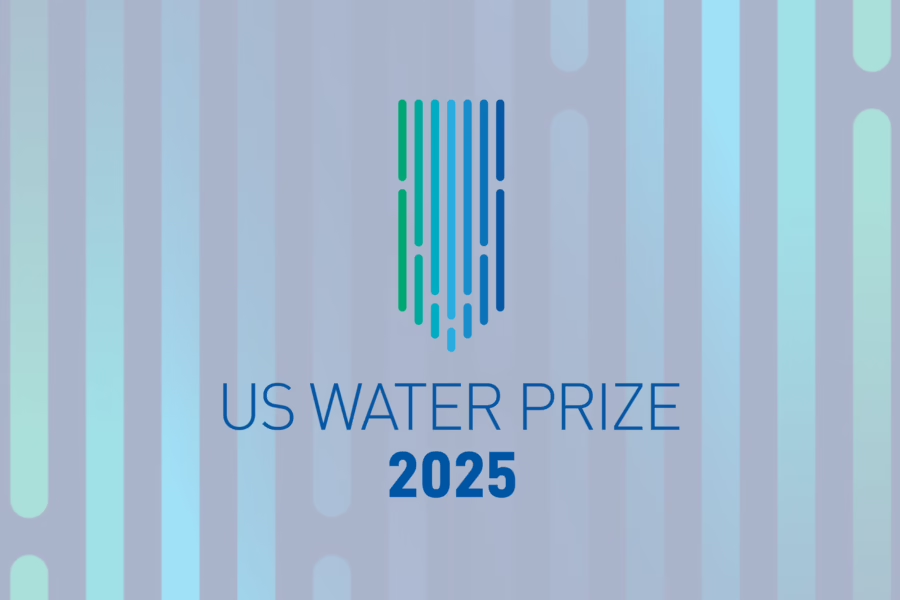A One Water Solution to Stormwater in Atlanta
In the summer of 2012, two significant rainfall events caused major flooding in a Southeast Atlanta community and brought stormwater management concerns to the forefront for Mayor Kasim Reed and the Department of Watershed Management. Atlanta, like many cities, was struggling with managing stormwater runoff that leads to flooding, degraded water quality, and property damage. In the last four years, Atlanta has emerged as a leader in green infrastructure through its commitment to incorporate best practices into stormwater management and implementing green infrastructure requirements for redevelopments and new projects throughout the City.
“Our ultimate goal is to reduce stormwater runoff by 225 million gallons annually,” said Kishia L. Powell, Commissioner of the Department of Watershed Management. “We champion green infrastructure efforts because they provide opportunities for a holistic approach to managing stormwater, while positively impacting the city’s triple bottom line and supporting Mayor Kasim Reed’s vision to make Atlanta a top-tier sustainable city.”
The City’s dedication to implementing green infrastructure solutions to emerging climactic trends doesn’t just impact the wellbeing of residents—it plays a vital role in determining Atlanta’s resiliency in the coming years. Last September, the City was named one of the world’s 100 Resilient Cities by the Rockefeller Foundation and now receives additional technical and financial support to plan for generations to come.
Our ultimate goal is to reduce stormwater runoff by 225 million gallons annually.
An Emerging Green Infrastructure Leader
Watershed Management recently installed a combined four miles of permeable pavers on nearly 20 streets in thanks to the Southeast Atlanta Green Infrastructure Initiative. The $15 million project reduces peak flow into the combined sewer system, provides nearly seven million gallons of storage and decreases localized flooding in the highly residential area, while beautifying roadways. Through this project, Atlanta has become a model for other permeable pavement projects in cities across the United States and is home to the largest permeable paver retrofit project in the nation. And residents that endured flooding in 2012 are seeing a decrease in stormwater issues that have plagued their community for more than a decade.
Additional green infrastructure improvements in this community include rain gardens, bioswales and detention ponds. The final proposed phase would include three wet ponds that are expected to provide 2 million gallons for stormwater relief and a greenspace for the community.
Accelerating Deployment Through Policy Changes
Atlanta is also changing policies and procedures to better integrate green infrastructure approaches to stormwater management. In 2013, Atlanta adopted one of the most far-reaching post-development stormwater management ordinances in the nation, laying the groundwork for a robust green infrastructure program both for private development and the City’s capital improvement projects. Under the ordinance, new and redevelopment sites are required to treat the first inch of stormwater runoff with green infrastructure by utilizing practices such as bioretention and permeable pavement.
Atlanta has permitted nearly 2,000 construction projects across the city that incorporate green infrastructure, equating to the removal of approximately 350 million gallons of polluted runoff from streams and combined sewer infrastructure annually. The Metropolitan North Georgia Water Planning District awarded Watershed Management a STREAM Award for its Post-Development Stormwater Management Ordinance, recognizing the outstanding sustainability achievements.
“The City of Atlanta has been a regional leader in embracing new technologies and methods for reducing stormwater impacts on our waterways,” said Riverkeeper Jason Ulseth of the Chattahoochee Riverkeepers. “Their green infrastructure initiatives will have lasting positive impacts on the Chattahoochee River by reducing flooding and pollution problems during rainy periods and will in turn help recharge river flows during times of drought.”
The City of Atlanta has been a regional leader in embracing new technologies and methods for reducing stormwater impacts on our waterways.
In 2016, more than 70 percent of Atlanta voters approved the reauthorization of the Municipal Option Sales Tax (MOST) to ensure the continued operation and efficiency of the City’s water and sewer infrastructure. Up to 10 percent, or $12.5 million, of MOST revenue annually will fund stormwater projects, allowing for improved water quality, better flood management, the creation of public amenities and compliance with clean water laws.
As a result of funding from MOST, the city has dramatically reduced both the number and volume of sewer spills, significantly decreased the number of rain-induced overflows into Atlanta’s rivers and streams, and made major repairs across the city; one of which being the two-acre stormwater detention pond in the Historic Fourth Ward Park.
The 9 million gallon Historic Fourth Ward Park pond provides an innovative solution to flooding and combined sewer capacity issues in the Northeast Atlanta community and serves as the centerpiece for the park. The pond was designed to capture stormwater runoff from an 800-acre drainage area in the Clear Creek basin, provides peak flow attenuation to the Highland Combined Sewer Trunk, and capacity relief to the overall Clear Creek combined sewer basin. The flood protection and stormwater overflow solutions are disguised through park features celebrating water. The pond is able to detain flows from a 100-year storm event and was built to comply with Atlanta’s federal consent decree requirements.
The original pond design included construction of an underground conveyance tunnel at an estimated price tag of $40 million. The stormwater pond was constructed for about $26 million, creating a savings of approximately $14 million.
Historic Fourth Ward Park not only provides stormwater capacity relief in Northeast Atlanta, but also serves as a functional amenity for the surrounding community. The 17-acre greenspace was transformed from a barren, brownfield into a vision for sustainable redevelopment. The park and the Atlanta BeltLine have further catalyzed significant private development in the immediate vicinity with more than 1,200 new condominium and apartment homes, totaling approximately $750 million in new economic development for this neighborhood and the City.

McDaniel Branch Stormwater Detention Ponds and Wetlands
Harnessing Green Infrastructure to Improve Resilience
“Through our partnership with the Rockefeller Foundation’s 100 Resilient Cities, we’re forming a comprehensive strategy to strengthen Atlanta’s resilience. Green infrastructure is critical to mitigating the effects of sudden systemic shocks that test our resilience such as flooding, as well as drought,” said Stephanie Stuckey Benfield, Chief Resilience Officer, City of Atlanta.
Building on success already achieved, the City developed a Green Infrastructure Strategic Action Plan to incorporate environmentally sound engineering best practices into stormwater management with a goal of reducing stormwater runoff by 225 million gallons annually. The City generates approximately 640 million gallons of stormwater runoff from a one-inch storm. Without a direct source of funding from a stormwater utility fee, Atlanta has undertaken the implementation of this program through an extensive coordination approach which relies on multiple City departments, non-profit organizations, and the private development community. Early phases of implementation focused on establishing baselines and goals, producing guidance material to simplify compliance, and training and outreach efforts for the development community and City staff to help ensure consistency.
Through our partnership with the Rockefeller Foundation’s 100 Resilient Cities, we’re forming a comprehensive strategy to strengthen Atlanta’s resilience.
More than 10 projects across the City serve as guidelines for Atlanta’s future green infrastructure endeavors. This year, Watershed Management will break ground on the Boone Boulevard Green Infrastructure and Capacity Relief Project and the Rodney Cook, Sr. Park at Historic Vine City Pond Project, both designed to alleviate flooding in the Proctor Creek Watershed.
Watershed Management’s five-year, $1.2 billion Capital Improvement Program is the result of a careful assessment of Atlanta’s system needs and planning for Atlanta’s future development. Green infrastructure is a critical component in sustainable, one-water solutions to preserve precious water resources for generations to come.


